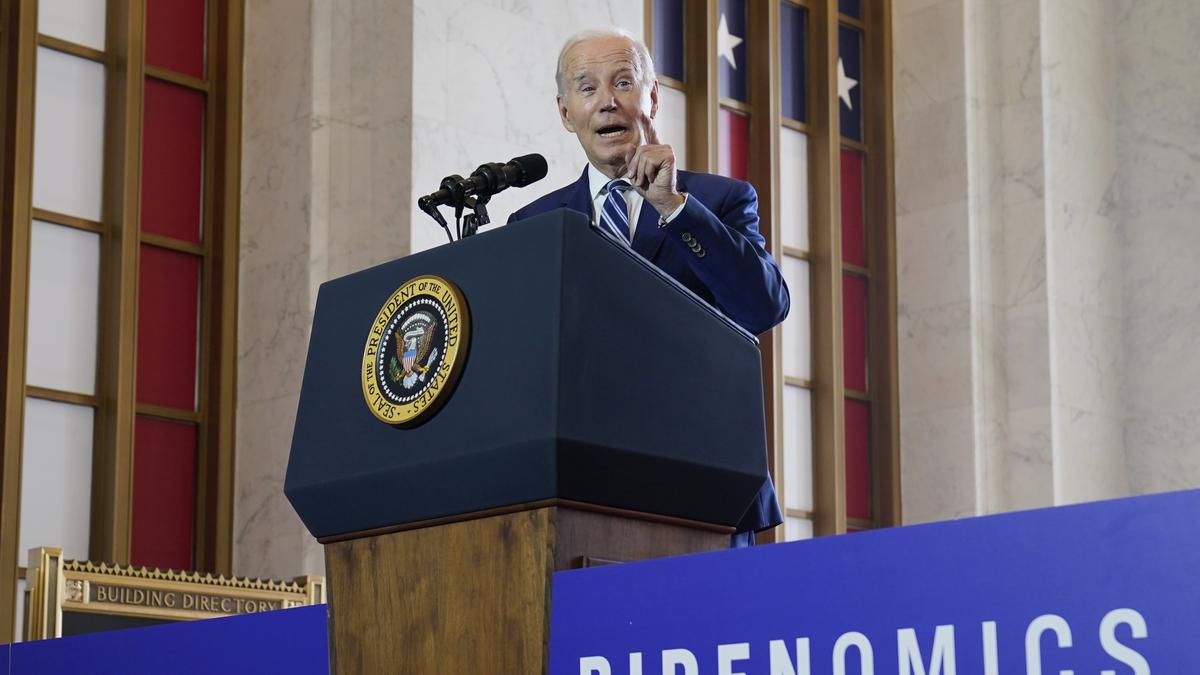
Biden’s election war chest trails Trump’s in size, filings show
The Hindu
Trump’s campaign, which was launched in November, reported spending about $9 million in the three months through June, more than any other campaign.
President Joe Biden’s re-election campaign ended last month with about $20 million in the bank, just trailing the $22 million plus reported by leading Republican candidate Donald Trump, according to financial disclosures released on Saturday.
The disclosures filed to the Federal Election Commission point to a competitive money race ahead of the November 2024 presidential election.
Mr. Biden has amassed a smaller war chest to past presidents at this point in recent re-election campaigns. Democrat Barack Obama had $37 million at this point in 2011, while Mr. Trump had more over $56 million in June 2019.
The funds detailed in the disclosures represent a significant chunk of the funding behind the campaigns, but do not include money gathered by allied super PACs, which typically raise massive sums from the wealthiest donors and are due to disclose details on their finances later in July.
Mr. Biden’s campaign announced on Friday that his re-election effort, when including the Democratic Party’s accounts, had $77 million in the bank.
The president is not expected to face a serious challenge in the Democratic nomination contest. One challenger, anti-vaccine activist Robert F. Kennedy Jr., reported raising just $6 million through June, while another, self-help guru Marianne Williamson, took in less than $1 million.
Mr. Trump’s campaign, which was launched in November, reported spending about $9 million in the three months through June, more than any other campaign, according to the disclosures wiled to election regulators. The spending included more than $2 million paid to Campaign Inbox LLC, a digital fundraising firm.

The 29th edition of the Conference of Parties (COP29), held at Baku in Azerbaijan, is arguably the most important of the United Nations’ climate conferences. It was supposed to conclude on November 22, after nearly 11 days of negotiations and the whole purpose was for the world to take a collective step forward in addressing rising carbon emissions.










